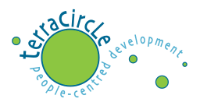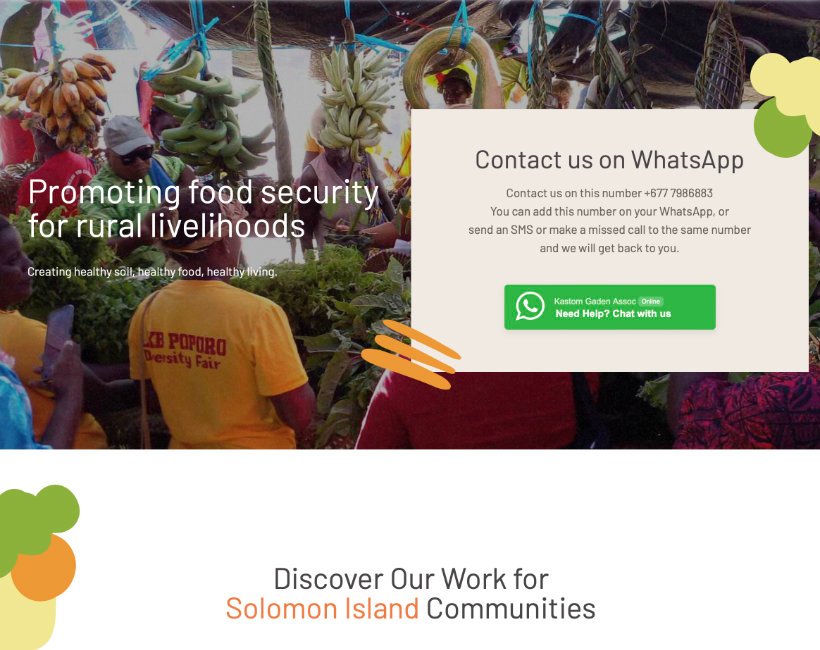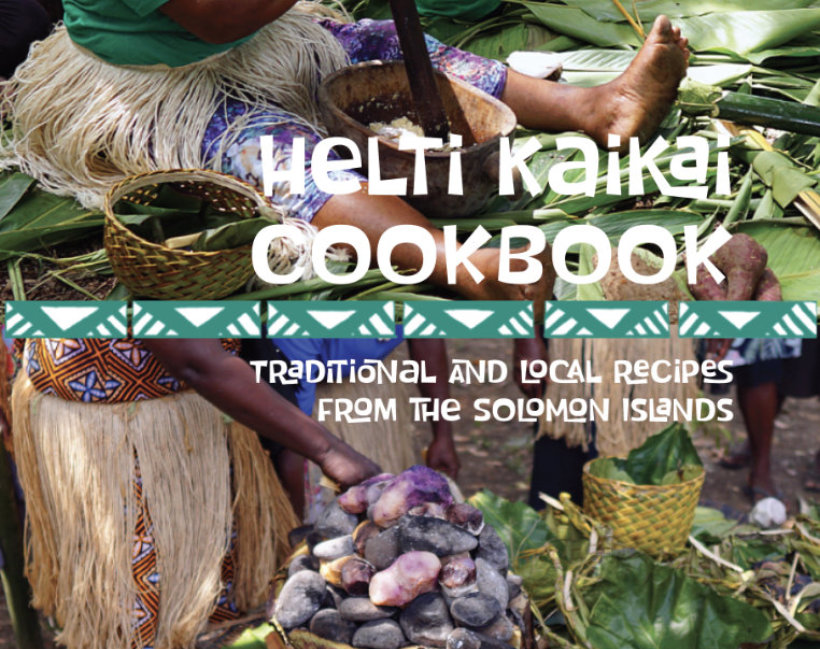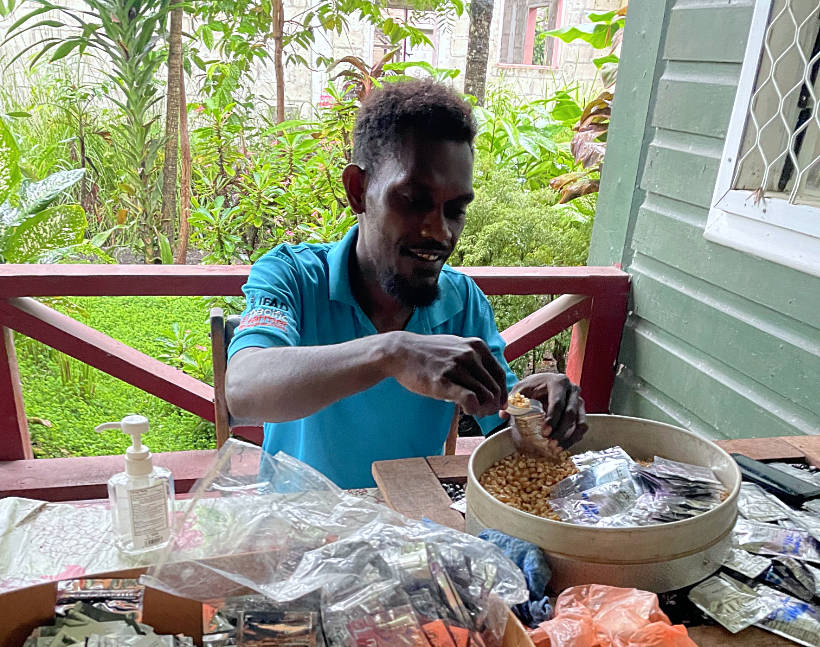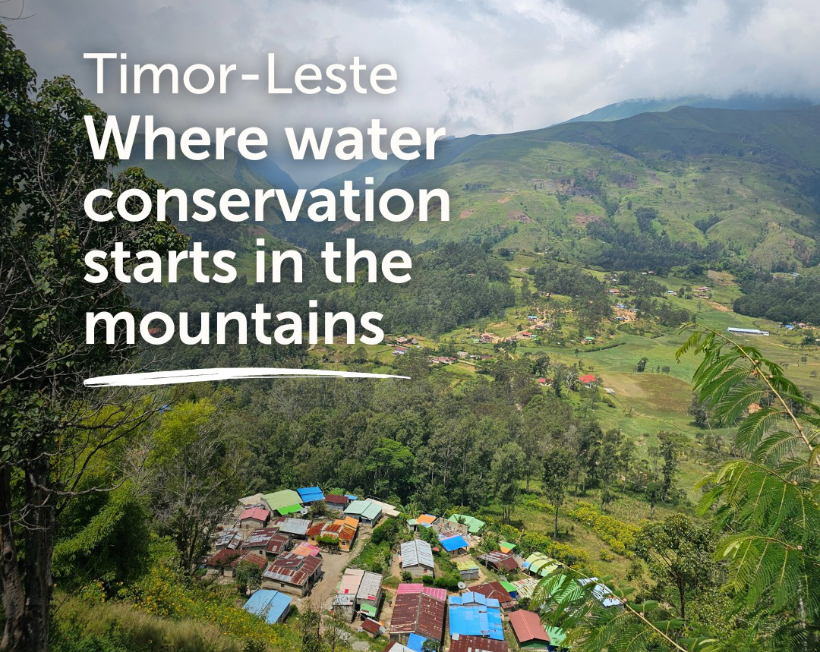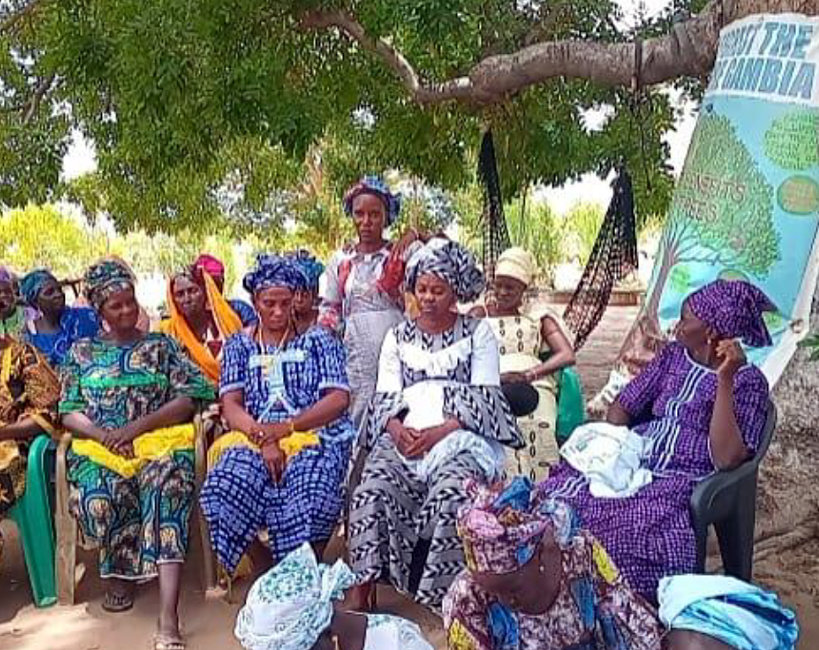BRIEF OF THE PROJECT — PROJECT IN PROGRESS…
Concept Note: Women Entrepreneurs and Environmental Heroes (WEEH)
Introduction
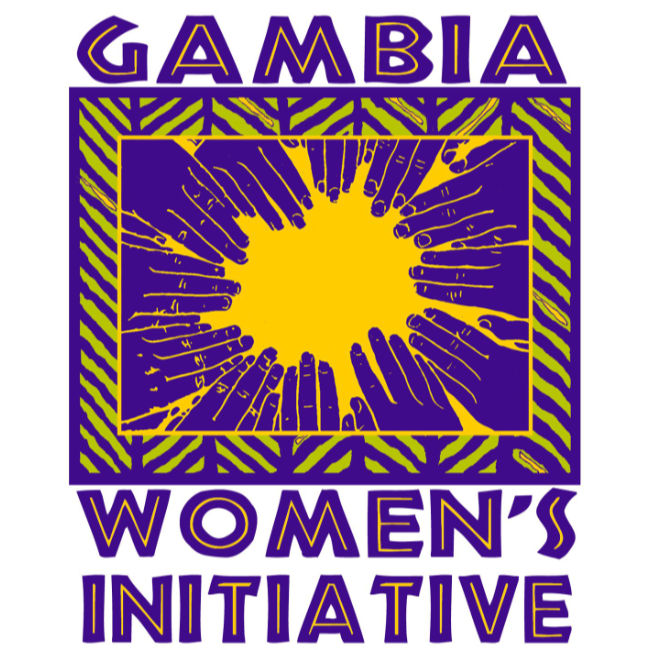 In The Gambia’s rural communities, where over 76.7% of the population lives in poverty and nearly half depend on agriculture, women stand at the crossroads of economic survival and environmental conservation. Every day, they toil in fields threatened by climate change, struggling to sustain their families with minimal financial resources and no formal business training.
In The Gambia’s rural communities, where over 76.7% of the population lives in poverty and nearly half depend on agriculture, women stand at the crossroads of economic survival and environmental conservation. Every day, they toil in fields threatened by climate change, struggling to sustain their families with minimal financial resources and no formal business training.
Many rely on small-scale farming, selling vegetables and handmade goods in local markets, yet they often lack access to credit, market linkages, and business training to scale their enterprises. Meanwhile, deforestation, soil degradation, and erratic rainfall patterns are diminishing agricultural yields, making it even harder for these women to provide for their families.
However, these same women hold immense potential to drive economic growth and restore fragile ecosystems if given the right tools and opportunities.
The Women Entrepreneurs and Environmental Heroes (WEEH) project, a flagship initiative of Women Initiative Gambia is designed to unlock this potential by equipping rural women with business skills, financial literacy, and environmental conservation techniques, ensuring that economic prosperity and ecological sustainability go hand in hand.
Through this initiative, women will gain the knowledge, resources, and networks needed to build sustainable businesses, strengthen savings groups, and engage in community-led conservation efforts that enhance their economic resilience and protect their natural environment
Background
Women in The Gambia make up the majority of the agricultural workforce but own less than 15% of the land. This economic disparity, combined with the increasing effects of climate change such as unpredictable rainfall, soil degradation, and deforestation further exacerbates their vulnerabilities. Without financial security and stable agricultural output, rural women face severe food insecurity, economic instability, and an increased burden of unpaid labour.
Globally, investing in women’s economic empowerment has proven to be one of the most effective ways to boost economic growth and community resilience. Studies by the World Bank indicate that empowering women economically can increase GDP in developing countries. Similarly, UN Women reports that climate resilience improves significantly in communities where women are actively engaged in environmental conservation.
The WEEH project is uniquely positioned to capitalize on these findings, ensuring that its impact contributes to national and global objectives of gender equality, economic development, and climate resilience and by providing rural women with the necessary skills, resources, and networks to become both successful entrepreneurs and proactive environmental stewards.
Overall Objective
To empower rural Gambian women by enhancing their entrepreneurial skills, promoting financial inclusion, and fostering environmental stewardship, thereby contributing to sustainable livelihoods and resilient communities in The Gambia.
Specific Objectives
- Enhance Entrepreneurial Skills:
Provide comprehensive training in business planning, financial management, and market engagement to enable women to develop and expand sustainable enterprises. - Advance Environmental Education and Climate Resilience:
Equip women with practical knowledge on environmental conservation, sustainable agriculture, climate change and climate adaptation strategies. - Foster Leadership and Community Action:
Strengthen the role of women as community leaders in local environmental projects, such as tree-planting, agroforestry, and waste management. - Promote Financial Inclusion:
Support the development of community-based savings and investment groups, empowering women to access resources for personal and business growth.
Target Beneficiaries
The WEEH project primarily targets rural women and their organizations, with special attention to vulnerable groups who often lack access to financial services, business training, and environmental education. Beneficiaries include:
- Women engaged in small-scale agriculture, agroforestry, and informal trading.
- Members of community savings groups and women-led cooperatives.
- Women in environmentally vulnerable areas, where climate change threatens local livelihoods.
Currently, the WEEH network consists of 53 women’s groups, each with 20 members, actively participating in savings and environmental clean-up activities. This project aims to build upon these efforts while expanding to other underserved communities to maximize impact.
Implementation Strategy
The WEEH project will be implemented through a participatory, community-driven approach that integrates economic empowerment and environmental sustainability. A needs assessment will be conducted at the start of the project to determine the specific challenges faced by women in different communities. This will ensure that the training programs and interventions are tailored to the local context, economic activities, and environmental conditions of each target group.
Training in entrepreneurship, financial literacy, and sustainable environmental management will be delivered through workshops, mentorship programs, and community-based demonstrations. Women will be trained in business development, savings management, and eco-friendly income-generating activities, while also engaging in climate-smart agriculture, tree-planting campaigns, and sustainable land-use initiatives.
Strategic partnerships with financial institutions, government agencies, and environmental organizations will be established to facilitate access to credit, market linkages, and technical expertise. Additionally, a train-the-trainer approach will be adopted, where selected women leaders will be trained to mentor and guide others within their communities, ensuring the long-term sustainability of the project.
Key Activities
- Entrepreneurship and Financial Literacy Training – Workshops on business planning, record-keeping, financial management, and market access strategies.
- Tree-Planting and Reforestation Campaigns Community-led initiatives to restore degraded lands and promote agroforestry.
- Climate Change Education – Interactive sessions on climate adaptation and mitigation, emphasizing women’s role in resilience-building.
- Business Incubation and Mentorship – Guidance and support for women entrepreneurs to develop, sustain, and scale their businesses.
- Strengthening Community Savings and Investment Mechanisms – Training in group savings, cooperative financing, and collective investment in sustainable projects.
Expected Outcomes
- Women develop profitable, sustainable businesses, leading to increased household incomes.
- Enhanced community engagement in environmental conservation efforts, leading to improved local ecosystems.
- Strengthened community savings groups, providing women with better access to financial resources.
- Women emerge as leaders in their communities, advocating for economic and environmental sustainability.
- Greater community resilience to climate change through widespread adoption of climate-smart practices.
Monitoring & Evaluation (M&E)
A robust M&E system will be established to track progress, measure impact, and ensure accountability. Baseline assessments will set clear benchmarks for economic and environmental indicators, while regular progress reviews will track training completion rates, business development, and conservation efforts. Quarterly stakeholder reviews will engage women leaders, community members, and project partners to ensure alignment with project goals. Additionally, focus groups, surveys, and case studies will be used to document lessons learned and inform future project phases.
Sustainability
The sustainability of WEEH will be ensured through community ownership, capacity building, and institutional support. Training programs will be embedded within local women’s groups, allowing them to continue knowledge-sharing and mentorship beyond the initial project phase. Savings and investment mechanisms will be strengthened, ensuring women have continuous access to capital for business growth. Partnerships with microfinance institutions and agricultural cooperatives will provide long-term financial and technical support. Additionally, advocacy efforts will encourage local authorities and policymakers to integrate women-led economic and environmental initiatives into national development programs, ensuring sustained impact at a broader scale.
Conclusion
The WEEH project represents a transformative opportunity to empower women as economic leaders and proactive environmental stewards. By integrating entrepreneurship with environmental conservation, WEEH ensures that rural women can build sustainable businesses, strengthen community resilience, and restore their natural environment.
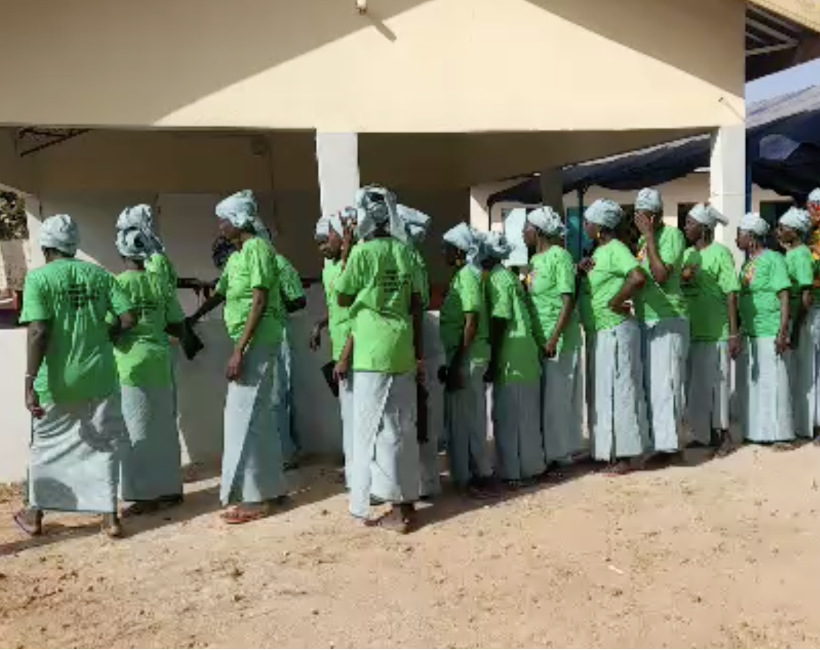
TerraCircle’s President, Tony Jansen captured this video of the women dancing in the central river region of Gambia when he visited.
